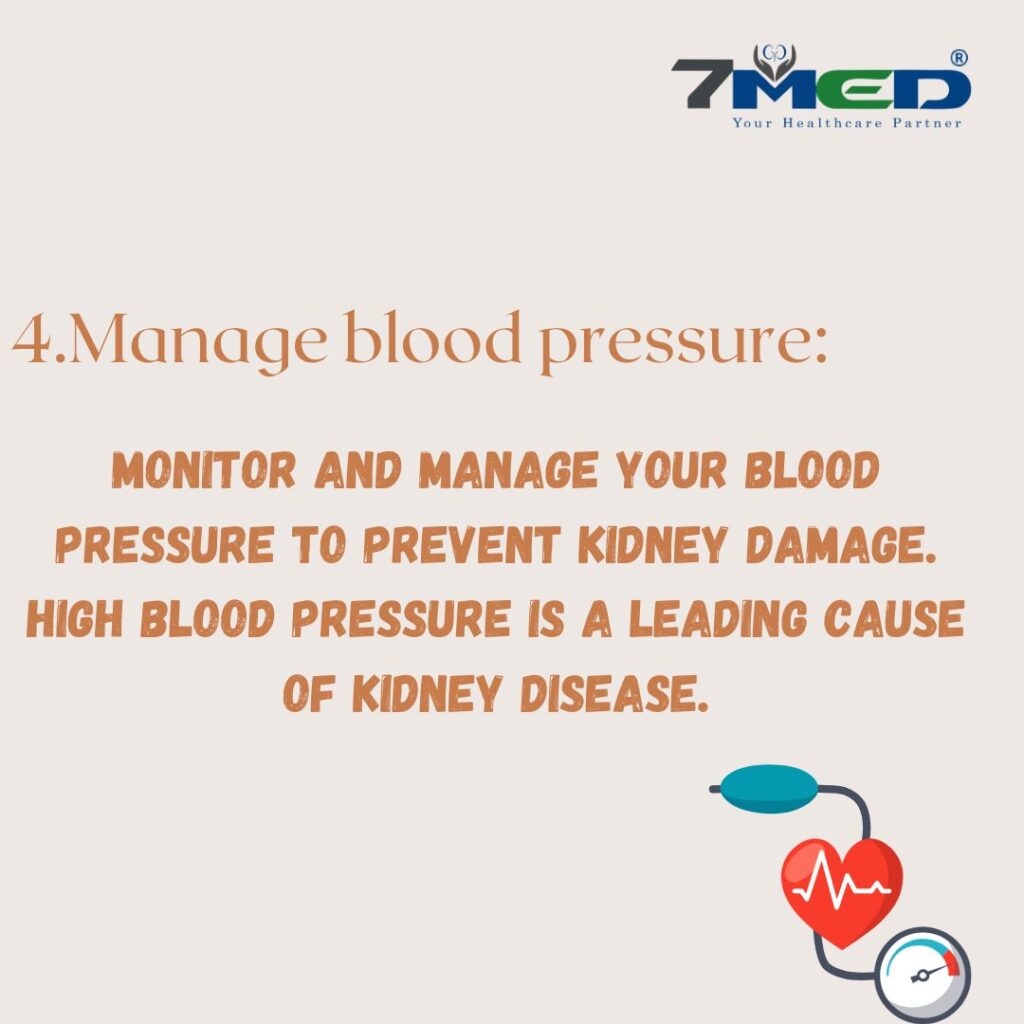How to keep yourself and your kidneys healthy?


Staying hydrated is crucial for maintaining kidney health and preventing kidney diseases. It helps to flush out toxins and waste products from the body and keep the kidneys functioning properly. Drinking an adequate amount of water and other fluids can also prevent the formation of kidney stones and urinary tract infections. Aim to drink at least 8 glasses of water a day, and more if you live in a hot climate or are physically active. Other kidney-friendly fluids include herbal teas, fruit juices, and low-fat milk. Remember, staying hydrated is a simple yet effective way to protect your kidney health.

Eating a balanced diet is crucial for preventing kidney disease. A balanced diet includes a variety of nutrient-dense foods such as fruits, vegetables, whole grains, lean proteins, and healthy fats. Avoiding processed and high-sodium foods can also help maintain healthy kidneys. Additionally, it is essential to limit the intake of sugary beverages, alcohol, and caffeine, which can cause dehydration and put a strain on the kidneys. By consuming a balanced diet and staying hydrated, individuals can reduce their risk of developing kidney disease and maintain optimal kidney health.

Controlling blood sugar is crucial for the prevention of kidney disease. High blood sugar can damage the small blood vessels in the kidneys, leading to kidney damage over time. People with diabetes are especially at risk for kidney disease and should carefully monitor their blood sugar levels. By maintaining a healthy diet and exercise routine, as well as following any medication or insulin regimens prescribed by a healthcare provider, individuals can help control their blood sugar levels and reduce their risk of developing kidney disease.

High blood pressure is one of the leading causes of kidney disease. Therefore, it is essential to monitor and manage blood pressure levels to prevent kidney damage. Some effective ways to control blood pressure include reducing salt intake, limiting alcohol consumption, increasing physical activity, maintaining a healthy weight, and taking prescribed medication as directed by a healthcare professional. By keeping blood pressure under control, you can reduce your risk of developing kidney disease and other related health problems.

Regular exercise is essential for maintaining overall health and preventing chronic diseases such as kidney disease. Engaging in physical activity can help to keep your body weight in check, lower your blood pressure, and reduce your risk of developing diabetes, all of which are risk factors for kidney disease. Exercise also improves cardiovascular health and enhances immune function, which can help to prevent infections that may cause kidney damage. Aim for at least 30 minutes of moderate-intensity exercise most days of the week, and talk to your doctor before starting any new exercise program.
